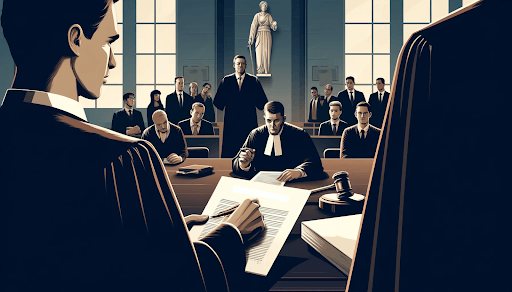Mediation agreements play a crucial role in legal proceedings, offering parties an alternative to traditional court battles. However, the question often arises: can a judge overrule a mediation agreement? This is a thought-provoking query that has significant implications for the parties involved and the legal system as a whole.
By understanding the intricate dynamics between mediation agreements and judicial decisions, we can gain valuable insights into the legal landscape and the options available to individuals seeking resolution through mediation.
Join us on this enlightening journey as we unravel the complexities of mediation agreements and delve into the fascinating world of judicial decisions.
The Role of a Mediation Agreement
Mediation agreements are voluntary and mutually agreeable contracts that outline the terms of settlement between parties in dispute. Usually facilitated by a neutral third party, the mediator, who assists the parties in reaching a resolution that satisfies their interests.
The significance of a mediation agreement lies in its ability to provide a structured framework for resolving conflicts outside of a courtroom.
By signing the agreement, the parties agree to abide by its terms and forego the right to pursue further legal action related to the dispute. This not only saves time and money but also allows for a more amicable and tailored resolution tailored to the specific needs of the parties involved.
Mediation agreements are legally binding documents that, when properly executed, can be enforced by a court of law. However, their enforceability is subject to the laws and regulations governing mediation in the jurisdiction where the agreement was reached.
The Authority of a Judge
When it comes to mediation agreements, judges have the power to review and enforce mediation agreements to ensure that they adhere to the law and are fair to all parties involved.
While judges can review the terms of a mediation agreement, they typically do not have the authority to make changes to the agreement itself. Judges must respect the autonomy and decision-making authority of the parties involved in the mediation process.
In cases where a mediation agreement is found to be illegal, unconscionable, or against public policy, a judge may intervene and overturn the agreement. Judges are tasked with upholding the rule of law and ensuring that justice is served, even when it means overruling a mediation agreement.
So, exactly when can a judge overrule a mediation agreement?
Despite the confidential nature of the mediation process, there are instances where a judge may step in to ensure fairness and legality.
When parties in mediation reach an agreement, it is typically binding. However, if the judge finds that the agreement was reached under duress, coercion, or fraud, they may decide to intervene.
Additionally, if the agreement violates public policy or involves illegal activities, a judge may also overturn it.
It’s essential to understand the balance between respecting the autonomy of the parties in mediation and upholding the law. Judges play a crucial role in safeguarding the integrity of the legal system while also promoting peaceful dispute resolution through mediation.
Conclusion
While it is rare for a judge to overrule a mediation agreement, there are certain circumstances where judicial intervention may be warranted. Judges have the authority to set aside a mediation agreement if it is found to be unconscionable, illegal, or against public policy.
This serves as a safeguard to protect the rights of parties involved in the mediation process.
It is essential for individuals engaging in mediation to be aware of the limitations of mediation agreements and to ensure that the terms are fair and enforceable. A well-drafted agreement that considers the best interests of all parties involved is more likely to stand up to judicial scrutiny.
Ultimately, mediation remains a valuable alternative dispute resolution method that promotes communication, cooperation, and flexibility in resolving conflicts. While the possibility of a judge overruling a mediation agreement exists, it should not deter individuals from seeking resolution through mediation.
The decision to utilize mediation should be made with careful consideration of its benefits and limitations, with the goal of reaching a mutually acceptable resolution for all parties involved.
